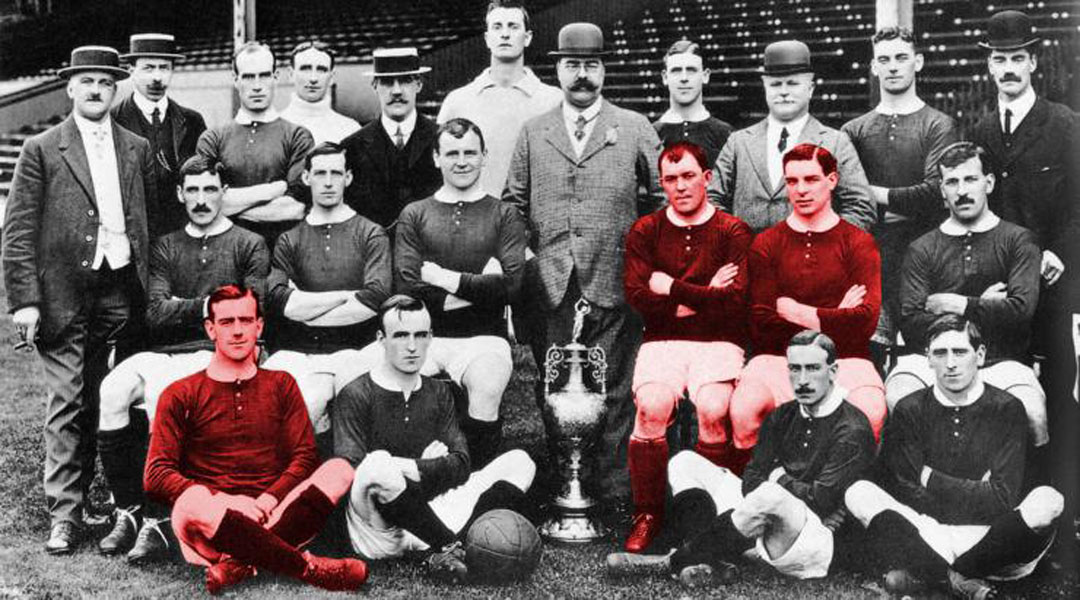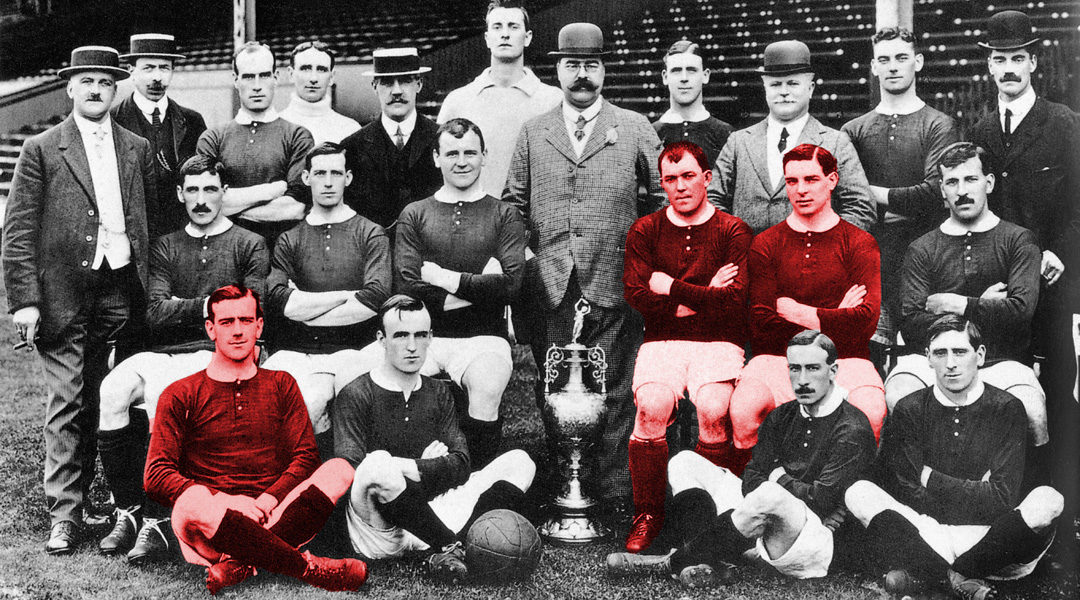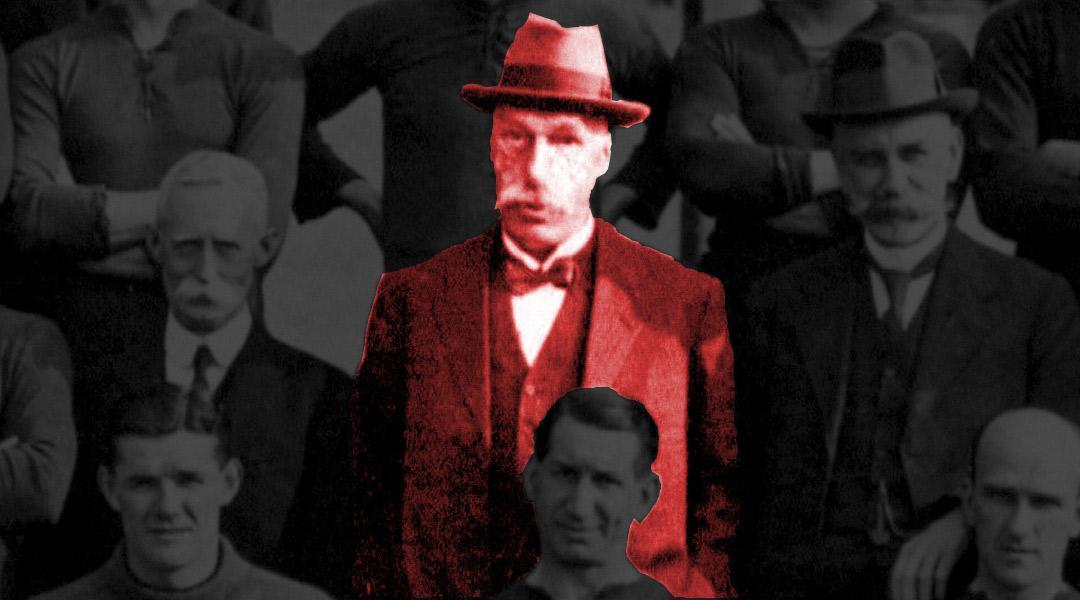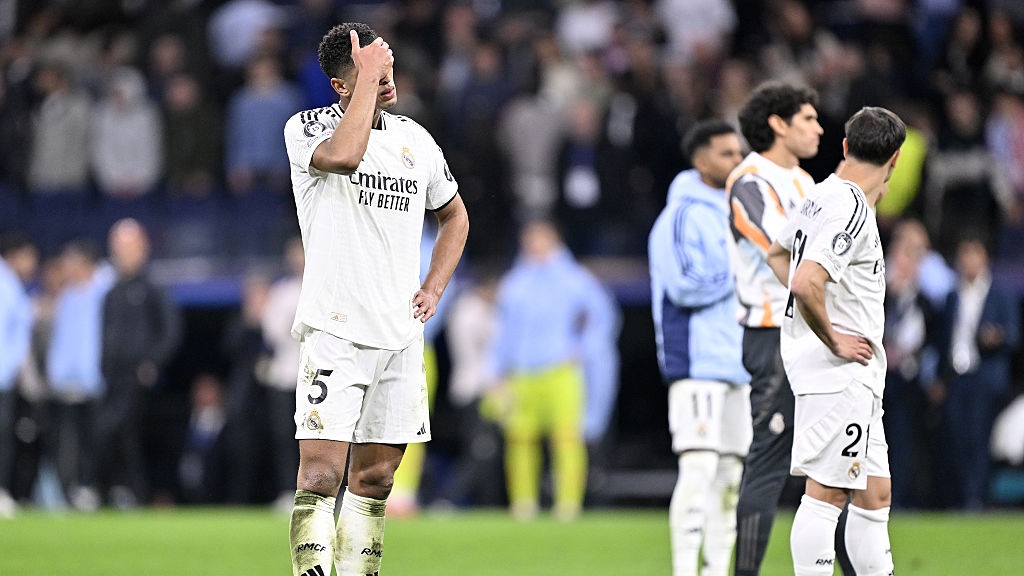How Man United and Liverpool fixed a match, helping Arsenal and Chelsea – but not Spurs
Everybody knows that Manchester United and Liverpool are the best of enemies, but what you may not know is that, 100 years ago, players from the two clubs joined forces to concoct one of the most despicable match-fixing schemes English football has ever seen...

The 15,000 or so present at Old Trafford sensed that something was amiss. Flailing just above the relegation zone, Manchester United took the lead against north-west rivals Liverpool early through George Anderson.
Comfortably ensconced in mid-table, Liverpool didn’t appear too perturbed, and reacted with barely a collective shrug of the shoulders when Anderson then put United two goals to the good before half-time. Virtually nothing of note happened in the second half.
Odd comments quickly surfaced. Sources close to the Liverpool team noted that Liverpool’s Fred Pagnam was rebuked by his team-mates for daring to clatter United’s crossbar in the second half.
Referee John Sharpe described the game as “the most extraordinary match I have ever officiated in,” after United skipper Patrick O’Connell rolled his penalty well wide of the post. Sharpe was at a loss to understand why United’s regular penalty taker – Anderson – opted out of taking the spot-kick.
It was the most extraordinary match I have ever officiated in
The Manchester Daily Dispatch carried its match report under the heading: “Liverpool Beaten – Lifeless Football in the Second Half.” According to other reports, United manager John 'Jack' Robson, disgusted at the second-half spectacle, stormed out of the ground before the final whistle. The two points United won from the game were enough to save them, and leave them one point above 19th-placed Chelsea, who were relegated to Division Two.
Unfair and squared
Attention focused on the lacklustre display of United forward Enoch 'Knocker' West. The normally-pugnacious West insisted he was carrying an injury, but rumours quickly spread that not only had West “taken it easy” in the game, but so had players from both teams. A week after the Good Friday match, the Sporting Chronicle reported: “… unsavoury comments are made, and the repetition of these observations, if not checked, is not likely to do the game any good, when football needs every friend it can find.”
Get FourFourTwo Newsletter
The best features, fun and footballing quizzes, straight to your inbox every week.

Huge sums of money had been bet at odds of 7/1 on a 2-0 win to United. A subsequent Football Association investigation found that players from both sides had been involved in – as Edwardians described it – “squaring the match”.
On December 27, 1915, United’s Sandy Turnbull, Arthur Whalley and 'Knocker' West, together with Liverpool’s Jackie Sheldon (a former United player, later alleged to be the plot’s ringleader), Tom Miller, Bob Pursell and Tom Fairfoul were banned from playing football for life.
Some players had refused to take part in the scam. Liverpool’s Fred Pagnam and United’s Anderson later testified against their team-mates. “It is an outrage, and a scandal,” fumed United manager Robson, after the investigation ruled that the players had concocted the scam themselves.
Football’s innocence is destroyed – perhaps forever
No officials from either team were convicted of any wrongdoing, and neither club was fined or had points deducted. The Manchester Daily Dispatch insisted: “Football’s innocence is destroyed – perhaps forever,” after the seven players were banned.
West continued to protest his innocence and sued the FA for libel. He lost his case, and his ban wasn’t lifted until 1945, by which time he was 59.
All the others, in recognition of service to their country during the war, had their bans lifted – including a posthumous reinstatement for Turnbull, who was killed during the war.
Anderson – cleared of wrongdoing in 1915 – was jailed in 1918 after being charged with fixing a United match against Burnley a year before, and it was revealed he was part of a larger-scale betting scam.
Meanwhile, in London...
Enter Sir Henry Norris, Woolwich Arsenal’s despotic and vengeful owner. His team, who’d finished fifth in the Second Division in the 1914/15 campaign, appeared some way off returning to the top flight.
With precious little income trickling its way into the club during the war, Norris, liable for damages to Highbury and anxious to recoup the money he’d lent Arsenal over previous years, and his debts were going nowhere fast.
If players play as some of the Liverpool players did in this match, they must expect to be criticised
Norris harboured a massive grudge against Liverpool, following their spineless display against Chelsea at the tail end of the 1912/13 campaign.
Mired in serious relegation trouble, Arsenal’s faint hopes of avoiding relegation from Division One (as the new Highbury Stadium was being built) were extinguished when Chelsea went to Anfield and won 2-1, confirming the south London side’s relegation.
Norris was heavily censured when he'd lambasted Liverpool's players for their performance (“But if players play as some of the Liverpool players did in this match, they must expect to be criticised,” he’d argued), and then, following the 1915 Good Friday 'squared match' and Anderson’s jail sentence, Norris sought revenge. The ramifications were about to send shockwaves through the football world.

FEATURE Henry Norris: The man who would be king at Arsenal
When the Football League met in Manchester in March 1919 to map out the post-war future of English football, it was proposed that the top two divisions (which previously consisted of 20 clubs each) be increased to 22 clubs. The feeling among members was that Chelsea, who’d finished second from bottom in the First Division ahead of Tottenham, be reinstated in the top flight without a vote.
The remaining First Division place did go to a vote. Tottenham stood against Arsenal, who’d finished fifth in Division Two in 1915. So did Barnsley and Wolves, who’d ended up in third and fourth place respectively in the second tier. And Nottingham Forest, Birmingham and Hull, who’d all finished lower in the Second Division. Arsenal easily won, seeing off Tottenham by 18 votes to eight.
Tottenham stood against Arsenal, who’d finished fifth in Division Two in 1915. Arsenal easily won, by 18 votes to eight.
There are several theories as to how Arsenal returned so controversially to the top flight after a six-year absence, and one of the more compelling arguments is that, being the master operator he was, Norris used the 1915 'squared match' to his advantage.
With the decision to expand Division One from 20 to 22 clubs, Chelsea had been re-elected back to Division One partly because if Liverpool and United hadn’t been in cahoots, they would have stayed up anyway.
Tottenham were relegated because the match-fixing scandal didn’t involve them at all. Norris agreed that Chelsea should be reprieved, and that the top two teams from Division Two should also be promoted; Derby and Preston.
A resolution to suit all parties (except Spurs)
Norris pointed out that United and Liverpool had not been punished for the 'squared game', and he wasn’t prepared to accept this. The jailing of United’s Anderson proved that match-fixing could be rife, and Norris threatened to force government action against a corrupt Football League. With his extensive political contacts, there seems little doubt that he would have carried out his threat. The League did not want to risk seeing two major northern powers demoted, so the hierarchy then pushed through a secret deal.
Arsenal would be awarded the final place in Division One and one new London club, West Ham, would be elected to Division Two. Job done. It was hardly ethical, but pragmatist that Norris was, he figured that Liverpool’s and United’s collusion over results in 1915 was even worse, and they’d gone unpunished.
There was precious little impact on either Liverpool or United, given that football was suspended shortly afterwards as the First World War escalated. The fall-out of events at Old Trafford 100 years ago – aside from creating an anti–hero out of 'Knocker' West and prompting authorities to demand tighter checks on unusual trends in betting – was most sharply felt 200 miles south, in the capital.
Arsenal, Chelsea and West Ham clearly benefited. Tottenham were left feeling aggrieved.
Jon Spurling is a history and politics teacher in his day job, but has written articles and interviewed footballers for numerous publications at home and abroad over the last 25 years. He is a long-time contributor to FourFourTwo and has authored seven books, including the best-selling Highbury: The Story of Arsenal in N5, and Get It On: How The '70s Rocked Football was published in March 2022.

